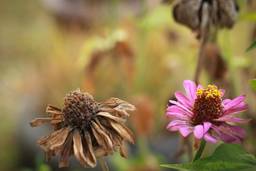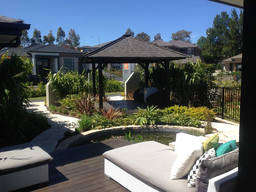5 mistakes that will jeopardise your garden

The most important thing to know about gardening is that it needs to be lived. It has to be an experience. This is why it’s really good for newbies to make mistakes, even though they may feel disheartened at the time. Growing veggies, herbs, or just flowers is a journey of trial and error. No two plants are exactly the same, so you’ve got to keep your eyes and mind open.
The reality is that mistakes will happen. The important thing is that you learn from them and have another go. If you want a bit of a head start, read this guide to the most common gardening faux pas and how to avoid them.
Persistent overwatering
Most gardens rely on artificial irrigation supplies for life-giving moisture, particularly in hot climates like Australia. Yet, there’s more to helping plants flourish than constant watering. In fact, you can very easily kill flowers, herbs, and veggies by providing too much water. So, make sure that you do your research on plant species before you sow anything. You need to know how often to water and which times of the day are best for it.
Being hostile to pollinators
Unfortunately for the entomophobic, the best gardens are always those which are friendly to creepy crawlies. Butterflies and bumblebees are some of the most efficient pollinators around and they can carry a flower bed into the summer, where it will bloom bright and make your neighbours jealous. The bad news is that pesticides scare away both the good and bad bugs. It is much kinder to plant species which appeal to the pollinators. If you’re patient, their numbers will swell in good weather and they’ll start to eat the unwanted guests.
Planting sterile species
When you first start out as a keen gardener, it’s tempting to want to pick up every beautiful flower that you see at home and on your travels. You need to be cautious though, because different species need different things. Many trees and shrubs come in self-sterile varieties, which means that they’ll only reproduce when planted in pairs. There are a number of apple trees which actually need to be planted in threes, so you can see how things might get tricky.
Putting your babies in the corner
Understanding and adapting to different light conditions is essential for all gardeners, but particularly veggie growers. Species like peas, squash, corn, beans, peppers, tomatoes, and cucumbers simply cannot produce unless they are planted in a very sunny spot. They may still grow surprisingly tall, but you’ll struggle to get a reasonable yield. Plant all species according to their light, shade, and temperature requirements.
Placing trees too close to the house
If you’re determined to plant trees on your property, think carefully about where they should go. Trees can look devastatingly beautiful, but they are not as easy to maintain as people think. Given enough time, the roots will start to intrude on the foundations of a house and may pose a threat to its structural integrity. They also block out light and make a mess with fallen leaves. The lesson here is simply to do your research before rushing into any big decisions.
Why failure Is just a word for gardeners
When it comes to gardening, everybody has to start somewhere. It takes time to learn how to judge soil content, regulate irrigation, and pick out suitable plant species. So, be patient and just enjoy the ride. It isn’t all about what you can create, because the journey is half the fun when you’ve got your very own slice of the planet to experiment on.
- Garden & Landscaping Contractors & Services in Australia
- Garden & Landscaping Contractors & Services in Adelaide
- Garden & Landscaping Contractors & Services in Brisbane
- Garden & Landscaping Contractors & Services in Inner North
- Garden & Landscaping Contractors & Services in Hobart & South East
- Garden & Landscaping Contractors & Services in Melbourne
- Garden & Landscaping Contractors & Services in Darwin
- Garden & Landscaping Contractors & Services in Sydney
- Garden & Landscaping Contractors & Services in Perth


